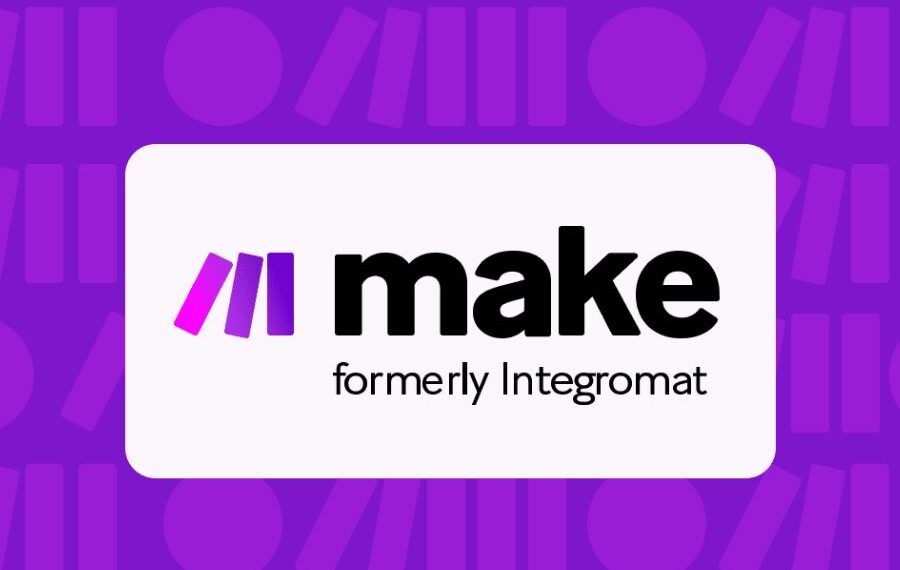Make (formerly Integromat) is a powerful automation platform that helps startups streamline processes by integrating apps and automating repetitive tasks without coding. Think of it as the ultimate workflow builder that connects tools like Google Sheets, Slack, Salesforce, and more, enabling startups to focus on growth instead of manual work.
But is Make the right fit for your startup? Let’s explore its features, benefits, drawbacks, and how it compares to alternatives to help you decide.
What is Make?
It’s a cloud-based no-code automation tool that lets users create workflows by linking different apps and services. Unlike simple automation tools that only allow one-step actions, Make offers multi-step, complex workflows with conditions, loops, and data transformations. Startups use it to save time, increase efficiency, and improve scalability.
💡 Why Startups Choose Make?
✔️ Automates tasks, reducing manual work ⏳
✔️ Connects 1,500+ apps for seamless integration 🔗
✔️ Affordable pricing for growing businesses 💰
Key Features of Make for Startups
🖥️ 1. Visual Drag-and-Drop Workflow Builder
✔️ Build automation scenarios on a visual canvas (not just lists)
✔️ Supports parallel actions, loops, and conditions for complex logic
✔️ Test and monitor workflows in real time 🔄
🔗 2. Extensive App Integrations
✔️ Connects with 1,500+ popular tools like Slack, Google Workspace, Notion, and more
✔️ Use API and webhooks to connect unsupported apps
✔️ Supports custom API calls for advanced integrations 🌍
⚙️ 3. No-Code with Low-Code Flexibility
✔️ No coding required for most tasks
✔️ Supports JavaScript, JSON, and advanced expressions for complex needs
✔️ Easily manipulate and transform data between apps 🔄
🔍 4. Data Processing & Transformation
✔️ Filter, format, and aggregate data as it moves between apps
✔️ Modify inputs and outputs to fit each tool’s requirements ✨
✔️ Helps clean and structure messy data automatically 🏗️
🔒 5. Security & Error Handling
✔️ Data encryption & compliance with industry standards 🔐
✔️ Custom error handling & retry logic to keep workflows running
✔️ Execution logs for easy debugging 📊
⏳ 6. Scheduling & Scalability
✔️ Run workflows on triggers or custom schedules
✔️ Start with a free plan (1,000 ops/month) and scale affordably
✔️ Handles millions of operations per month for growing businesses 📈

Pros of Using Make for Startups
⚡ 1. Powerful & Flexible Automation
✔️ Supports multi-step workflows with advanced logic
✔️ More complex than Zapier, great for startups with unique needs
✔️ Handles real-time triggers & scheduled tasks efficiently ⏳
💲 2. Affordable Compared to Competitors
✔️ Generous free tier (1,000 tasks/month)
✔️ Paid plans start at ~$9/month, significantly cheaper than Zapier
✔️ More operations per dollar than other automation tools 💰
🔗 3. Integrates Almost Any App
✔️ Pre-built integrations with 1,500+ tools
✔️ API & webhooks for custom connections
✔️ HTTP requests for services without built-in support 🔄
🖥️ 4. Intuitive Visual Interface
✔️ Flowchart-style builder makes automations easier to understand
✔️ Live testing shows how data moves through workflows in real time 👀
✔️ Debugging is simple with detailed logs and history 📊
🚀 5. Great for Startups Scaling Operations
✔️ Automate customer onboarding, marketing, support, and more
✔️ Eliminates repetitive manual work, boosting efficiency
✔️ Scales with your business as automation needs grow 📈
Cons of Using Make for Startups
📚 1. Steep Learning Curve
❌ More complex than simple automation tools like Zapier
❌ Requires time to master advanced workflows
❌ Limited pre-built templates, so more setup is needed 🛠️
⏳ 2. Can Be Overkill for Basic Needs
❌ Best suited for complex automations; simple workflows might be easier on Zapier
❌ Setting up easy workflows may take longer than expected
❌ If you only need a few zaps, a simpler tool may work better 🤔
📶 3. Requires Stable Internet
❌ Cloud-based – must be online to create and manage workflows
❌ Offline functionality is limited compared to native integrations 🌐
📊 4. Large Data Loads Can Slow It Down
❌ May struggle with massive datasets (e.g., thousands of records at once)
❌ Processing times can increase with very complex workflows
❌ Higher usage plans can get expensive if you scale aggressively 📈

Comparing Make with Alternatives
🔄 Make vs. Zapier
✔️ Make: Better for complex workflows, cheaper pricing 💰
✔️ Zapier: Easier for simple automations, larger app library 🔗
🔄 Make vs. n8n (Open Source)
✔️ Make: No hosting required, easier to use 🌐
✔️ n8n: Self-hosted option, great for developers 👨💻
🔄 Make vs. Workato
✔️ Make: Affordable and great for startups 💡
✔️ Workato: Enterprise-level features but expensive 💸
🔄 Make vs. Automate.io (Notion’s Integration)
✔️ Make: More powerful & flexible, supports many tools 🔄
✔️ Automate.io: Simpler, best for Notion users 📝
Is Make Right for Your Startup?
✅ Use if:
✔️ You need complex, multi-step automations 🤖
✔️ You want affordable automation (cheaper than Zapier) 💰
✔️ You need custom API integrations & data transformations 📊
✔️ Your startup relies on scaling workflows & saving time ⏳
❌ Avoid if:
❌ You only need very simple automations (Zapier is easier) ⚡
❌ Your team isn’t tech-savvy & needs plug-and-play solutions 🎛️
❌ You don’t want to spend time learning a powerful but complex tool 📚
Final Verdict: Should Startups Use Make?
Make is one of the most powerful and cost-effective automation tools for startups. If your business needs scalable, no-code automation that can handle complex workflows, it’s a great investment. While it has a learning curve, the time saved increases efficiency and productivity—giving your startup a competitive edge. 🚀
💡 Recommendation: Try the free plan, explore key features, and if it fits your needs, upgrade as your startup scales! 🎯










